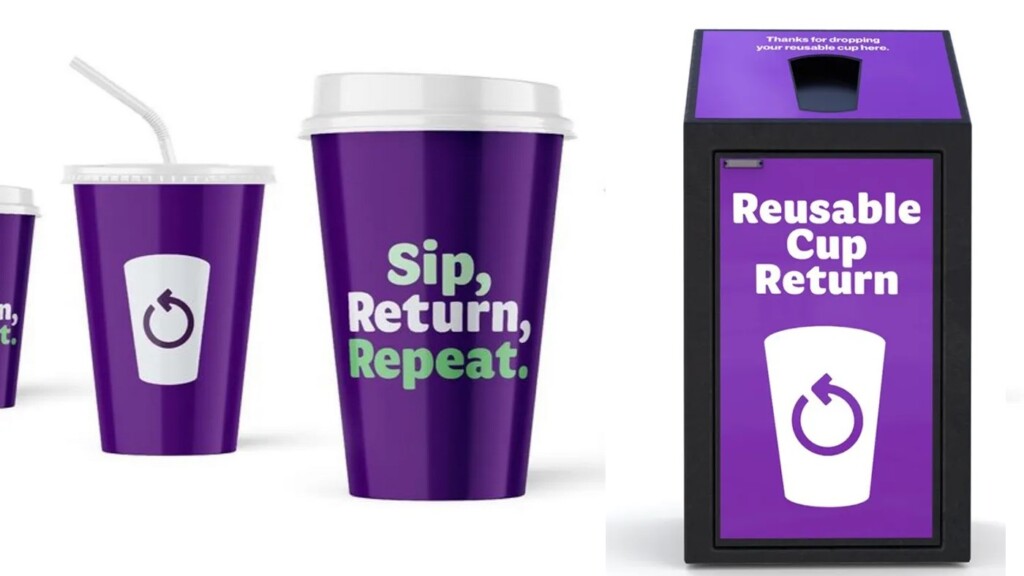 Petaluma reuseable cups – credit, NextGen Consortium
Petaluma reuseable cups – credit, NextGen ConsortiumLast July, GNN reported on the California city of Petaluma and its experiment collaborating with local restaurants to create a city-wide return-and-reuse beverage cup program.
At the time, the plan was a 3-month trial: the results of which are in. It was a home run.
With major chains like Starbucks and Taco Bell joining in alongside local mom-and-pop stores, the program ensured customers wouldn’t be charged a penny more for the reusable, but were merely asked to deposit their cup in one of many purple bins around the city center.
“I think this was a very exciting thing to be part of to be the only city in the country to do this,” proclaimed Ashley Harris, a manager at the Petaluma branch of Coffee & Tea Company.
CBS News in the Bay Area reported on the project’s launch, and is now happily trumpeting its success. Set up by the Closed Loop Partners investment firm’s Center for the Circular Economy, the program aimed to cut back on the 50 billion disposable drink cups used by Americans every day.
The program’s organizers, NextGen Consortium, employed the local firm Muuse to provide the collection, washing, and distribution of the cups.
“I really liked it. There were a million places where you could put the cup back,” resident Kadi Newlan told CBS.
According to a report published by NextGen, over 220,000 cups were used and returned in the city of 60,000. Customers were not required to return the cup immediately after first use, and they could carry it around and use it, for example, like a refillable coffee cup.
With a vibrant purple exterior, the cups could be easily picked out of waste streams in case someone tossed them in with the normal garbage or recycling. The bins, advertisements, cups, and stations inside restaurants all shared the same color to help connect the infrastructure in people’s minds.
And this helped the project massively. NextGen Consortium’s report showed that 83% of customers knew of the program’s existence, of whom 88% knew how to return the cup, and 80% wanted the program to continue, something the owner of a local slushie and ice cream shop, Once Upon A Slush, noticed himself.
CUTTING OUT THE WASTE: Pee From Runners at the London Marathon is Going to Be Turned into Fertilizer for Wheat
“We haven’t seen that level of community engagement, awareness, understanding, satisfaction, and pride. Petaluma was very proud of the project,” Carolina Lobel, senior director at the Center for the Circular Economy, told CBS.
The experiment is over, and most Petalumans are back using either disposable drink cups or their own reusable ones, and both the Center and Consortium are left to decide what to do with the knowledge.
MORE CIRCULAR ECONOMY STORIES: Scientists Are Making Jet Fuel from Landfill Gas Aiming to Launch Circular Economy
Given that Petaluma business leaders like Harris hope to see the project become permanent, Lobel said they’re investigating how to do just that—by turning over the knowledge and materials to private partners.
WATCH the report’s success below…
SHARE This Inspiring Success Promising City-Wide Sustainability With Your Friends…
Source link

